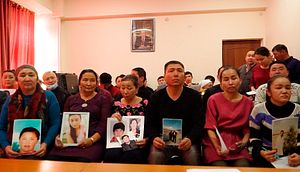Kazakhstan and China have developed strong economic and political ties over the last few decades. But the Xinjiang crisis, involving ethnic Kazakh people in addition to Uyghurs and other Muslim groups, could have long-lasting and wide-ranging impacts on the Kazakhstan-China relationship. Kazakhstan may be particularly vulnerable given the power transition process playing out at present.
After the dissolution of the Soviet Union in 1991, China worked on developing relations with its newly independent Central Asian neighbors, starting with establishing borders. Kazakhstan was one of the first Central Asian states to start developing trade relations with China. China’s reliance on energy imports led Beijing to invest heavily in Kazakhstan’s resource sector. Over time, trade between Kazakhstan and China has increased, with China becoming Kazakhstan’s second biggest trade partner (after Russia) and reaching an estimated $11.07 billion in bilateral trade in 2017. Other avenues of economic cooperation include direct Chinese investment in Kazakhstan, which grew 6.6 percent from 2016 to 2018.
These numbers are only projected to increase in the future thanks to Beijing’s ambitious plans for its Belt and Road Initiative (BRI), in which Kazakhstan is a key node. The BRI is an initiative with the stated aim to connect China with Europe through Central Asia (namely, Kazakhstan), and Southeast Asia, plus other routes added into the conceptual framework as it grows. It also aims to stimulate China’s economy at a time when its growth is projected to slow. According to leaders in both China and Kazakhstan, the initiative will benefit Kazakhstan’s economy immensely, in particular by increasing trade with China, attracting Chinese and other investments, establishing logistics hubs, and providing opportunity to jointly oppose currency risks.
This deepening relationship between Kazakhstan and China, rooted in both geostrategic and economic needs, makes domestic Kazakh opposition to China’s policies in Xinjiang exceptionally difficult for the Kazakh leadership to manage. China’s internment program in Xinjiang has captured headlines across the world but flummoxed the international community.

































